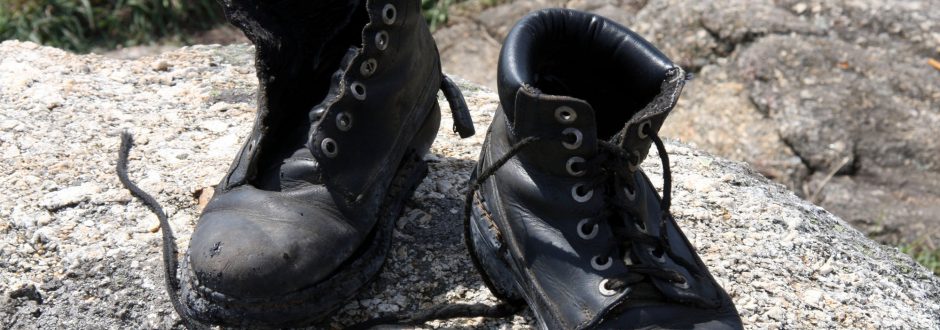The greatest awakening of my World Youth Day pilgrimage took place when I got back home, writes Ashleigh Green.
BY Ashleigh Green
I’ll never forget standing in a crowd of 2.5 million young people who were shouting “Papa Francesco!” in unison. I’ll never forget the moment Pope Francis asked us all to join hands and build “bridges of peace”. I was overcome by the beauty, emotion and peace that I felt in that moment.
And then the Pope looked out at us, a sea of faces in a Polish field, and he told us not to be couch potatoes when we got back home.
“Dear young people,” he said, “we didn’t come into this world to ‘vegetate’, to take it easy, to make our lives a comfortable sofa to fall asleep on. No, we came for another reason: to leave a mark.”
Wait, so it wasn’t all about this moment? I was feeling rather energised and optimistic as I stood there surrounded by millions of people who were on fire for God. All around me were people radiating this profound sense of peace and joy. I could be joyful, given the right conditions!
The greatest awakening of my World Youth Day pilgrimage took place when I got back home. Suddenly, I was challenged to grapple with what mercy looks like when life is ordinary again, and what “leaving a mark” looks like when that comfortable sofa is so enticing. The most important part of my pilgrimage was my return.
Pilgrimage has entered popular culture in the likes of films and books such as Eat, Pray, Love and, more recently, Wild, the story of a divorcee who leaves her home town to hike 1,100 miles along the Pacific Crest Trail. It is no wonder, given our fast-paced, frantic lifestyles that these journeys are so alluring. The number of Australians walking the Camino de Santiago – an ancient pilgrim walk through Spain – has increased by 800 per cent since 2004.
Popular culture feeds the idea that pilgrimage comes hand-in-hand with a single, profound moment of awakening. Suddenly, life makes sense and the missing puzzle pieces appear. The awakening usually occurs during the most cumbersome, challenging part of the journey and life, after that moment, is supposed to be different. The awakening is the pinnacle. What we aren’t prepared for is the return.
In a recent interview on The RobCast, Alexander Shaia offered a thought-provoking reflection on pilgrimage: “The literature talks about how to have an ecstatic, transformational experience,” he said. “But there’s not much on what to do when you get home from your pilgrimage when you’re surrounded by people who haven’t shared your experience and it’s lonely.” Shaia argues that pilgrimage is less about one, significant moment of awakening, than it is about experiences of opening and the receiving of new energy.
When I returned home after World Youth Day I certainly felt changed, but I couldn’t tell you precisely which aspects of my life would be different. I wondered whether I’d got it all wrong.
Within four days of my return I found myself in Tamworth for a three-month social work placement in community mental health. It was a swift transition from the hustle and bustle of a city bursting with 2.5 million young, passionate Catholics to a town where I didn’t know a soul.
I missed being in a constant state of awe and inspiration.
I missed waking up to joyful faces and to full days of activity.
Instead, I found myself entering the homes of people living with debilitating mental illnesses for whom joy is often non-existent. I entered the homes of people who were living in squalor with the remains of two-minute noodles and old cigarette butts lining their carpets. Many of these people had complex histories of abuse and were the subjects of rumours that spread like wildfire throughout country towns.
My encounters were emotionally heavy, and I caught myself wishing I was back in Poland on pilgrimage. It took me some time to realise that my pilgrimage was not simply a happy, inspiring memory to fall back on when life becomes mundane again.
At World Youth Day, Pope Francis spoke frequently about the theme of mercy. “The Lord once more asks you to be in the forefront of serving others,” he said. “He wants to make you a concrete response to the needs and sufferings of humanity. He wants you to be signs of merciful love for our time!”
My return was the pinnacle of my pilgrimage. Merciful love was a beautiful concept to grapple with while on pilgrimage. But when the crowds were gone and the chanting had stopped, merciful love became something real and tangible.
Perhaps, pilgrimage is less about searching for colourful moments of awakening than it is about opening ourselves to a new energy… And then, when life is ordinary and messy again, listening with the ear of our hearts for the silent whispers and gentle, quiet awakenings.
